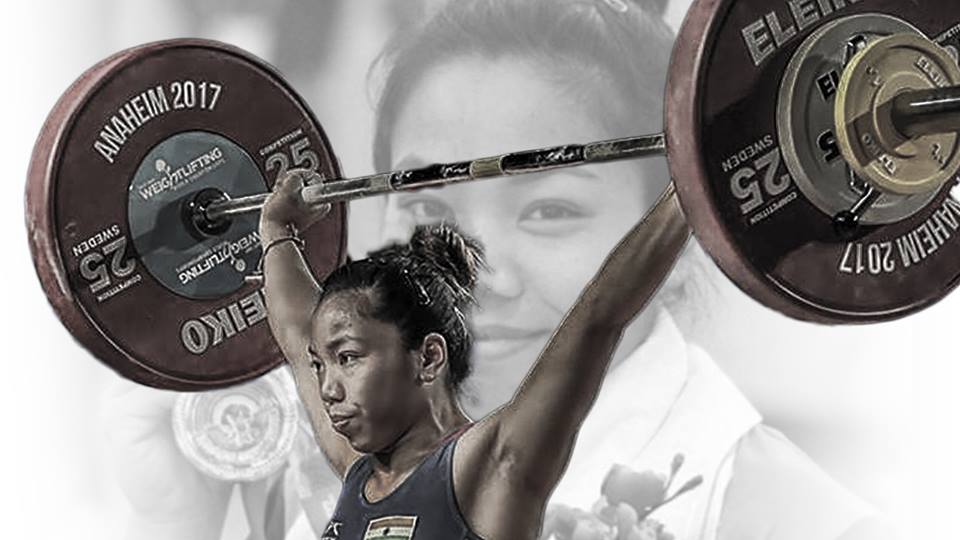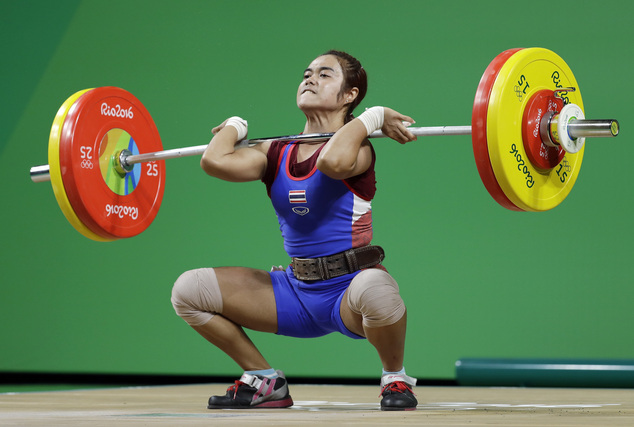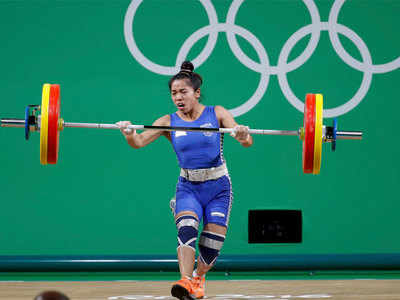Begin typing your search above and press return to search.
Featured
What Thailand's voluntary weightlifting ban means for Mirabai Chanu at Tokyo Olympics
Thailand has volunteered to ban itself from 2020 Tokyo Olympic Games weightlifting even after the country was embroiled into a string of doping cases, removing a traditional power in the sport from contention.

Thailand has volunteered to ban itself from 2020 Tokyo Olympic Games weightlifting even after the country was embroiled into a string of doping cases, removing a traditional power in the sport from contention. Despite this self-imposed ban, Thailand will host the 2019 World Championships in September in Pattaya. However, no home competitors will take part in it, the International Weightlifting Federation (IWF) said. The decision come after the Thai team underwent eight failed drug tests following the last worlds in November at Ashgabat in Turkmenistan. Doping charges were made against three women who won world titles.  Sopita Tanasan, of Thailand (Picture: Associated Press) Among the eight lifters facing bans are Sopita Tanasan, the IWF female weightlifter of the year in 2016 who won the Gold medal at Rio Olympics in 48 kg category. The earlier positives include the 58 kg Rio Olympic champion Sukanya Srisurat, the 55kg winner in Ashgabat who was also suspended for doping in 2011. The others are Thunya Sukcharoen, the 45kg World Championships winner, Chitchanok Pulsabsakul, also banned in 2011, Duanganksnorn Chaidee, a super-heavyweight bronze medallist in Ashgabat, and the only male among the eight, 17-year-old Teerapat Chomchuen. The 49kg world champion Chayuttra Pramongkhol and 64kg world bronze medallist Rattanawan Wamalun are also named in the ban.
Sopita Tanasan, of Thailand (Picture: Associated Press) Among the eight lifters facing bans are Sopita Tanasan, the IWF female weightlifter of the year in 2016 who won the Gold medal at Rio Olympics in 48 kg category. The earlier positives include the 58 kg Rio Olympic champion Sukanya Srisurat, the 55kg winner in Ashgabat who was also suspended for doping in 2011. The others are Thunya Sukcharoen, the 45kg World Championships winner, Chitchanok Pulsabsakul, also banned in 2011, Duanganksnorn Chaidee, a super-heavyweight bronze medallist in Ashgabat, and the only male among the eight, 17-year-old Teerapat Chomchuen. The 49kg world champion Chayuttra Pramongkhol and 64kg world bronze medallist Rattanawan Wamalun are also named in the ban.  Mirabai had a disappointing outing at the Rio Olympics in 2016. She failed to lift 104 kg in her first clean and jerk attempt. And then couldn't lift 106 kg in the second and third attempts. With renewed vigour, she will be raring to strike the gold in Tokyo 2020. At the Rio Games, Sopita Tanasan lifted 200kg, whereas the silver and bronze medal winner lifted 192 kg and 188 kg respectively, Going by Mirabai's improvements in the next couple of years, the target seems way within her grasp. With around 500 days for the Tokyo Games, India will be weaving renewed hopes for Mirabai to add another feather to the cap.
Mirabai had a disappointing outing at the Rio Olympics in 2016. She failed to lift 104 kg in her first clean and jerk attempt. And then couldn't lift 106 kg in the second and third attempts. With renewed vigour, she will be raring to strike the gold in Tokyo 2020. At the Rio Games, Sopita Tanasan lifted 200kg, whereas the silver and bronze medal winner lifted 192 kg and 188 kg respectively, Going by Mirabai's improvements in the next couple of years, the target seems way within her grasp. With around 500 days for the Tokyo Games, India will be weaving renewed hopes for Mirabai to add another feather to the cap.
 Sopita Tanasan, of Thailand (Picture: Associated Press) Among the eight lifters facing bans are Sopita Tanasan, the IWF female weightlifter of the year in 2016 who won the Gold medal at Rio Olympics in 48 kg category. The earlier positives include the 58 kg Rio Olympic champion Sukanya Srisurat, the 55kg winner in Ashgabat who was also suspended for doping in 2011. The others are Thunya Sukcharoen, the 45kg World Championships winner, Chitchanok Pulsabsakul, also banned in 2011, Duanganksnorn Chaidee, a super-heavyweight bronze medallist in Ashgabat, and the only male among the eight, 17-year-old Teerapat Chomchuen. The 49kg world champion Chayuttra Pramongkhol and 64kg world bronze medallist Rattanawan Wamalun are also named in the ban.
Sopita Tanasan, of Thailand (Picture: Associated Press) Among the eight lifters facing bans are Sopita Tanasan, the IWF female weightlifter of the year in 2016 who won the Gold medal at Rio Olympics in 48 kg category. The earlier positives include the 58 kg Rio Olympic champion Sukanya Srisurat, the 55kg winner in Ashgabat who was also suspended for doping in 2011. The others are Thunya Sukcharoen, the 45kg World Championships winner, Chitchanok Pulsabsakul, also banned in 2011, Duanganksnorn Chaidee, a super-heavyweight bronze medallist in Ashgabat, and the only male among the eight, 17-year-old Teerapat Chomchuen. The 49kg world champion Chayuttra Pramongkhol and 64kg world bronze medallist Rattanawan Wamalun are also named in the ban. The specifics of the Doping scandal
All of the doping cases involve at least one substance of the banned adiol type, with some lifters testing positive for multiple drugs. The doping charges bring about a fresh embarrassment for weightlifting, which is under pressure from the International Olympic Committee (IOC). The sport has a provisional place on the programme for the 2024 Paris Olympics on condition it cracks down on doping of the athletes. Many weightlifters who competed at the last three Olympics were later tested positive. Russia and China were among the nine countries banned from international competition for a year in 2017 after racking up numerous doping cases. Russia and Bulgaria also missed the 2016 Olympics over doping, and countries with major drug problems will have fewer qualifying place for next year's games in Tokyo. Thailand, though stood by its moral ground, will have to pay the price for withdrawing the weightlifting team from Tokyo Olympics.Weightlifting has offered the country among best prospects of gold medals, having produced five out of Thailand's nine Olympic champions since it first took part in the Helsinki Games in 1952.The Thai Olympic team's Chef de Mission, Thana Chaiprasit, believes, however, the decision is final and he urged all sports associations to warn their athletes to be extra-careful with any supplementary products and medicines they take.
The effect on India's prospect at Tokyo 2020
With the ban on the Thai team, the focus now shifts on the chances of India winning a silverware. New avenues of hopes are open for a gold medal in weightlifting, particularly for none other than Saikhom Mirabai Chanu. Despite a lower back injury in May 2018 ruled her out for eight months, the Manipuri star bounced back with a bang. Mirabai, on her comeback, clinched the gold medal at the EGAT Cup in Thailand in February this year. It was an impressive feat for her as this was not in the weight category she is most comfortable with (48kg), but her new 49 kg category. She beat her competitors, with an effort of 192 kg. The IWF renewed the weight categories for both men and women in the Olympics and other global events last year. The 2020 Olympics will have seven women's weight categories in weightlifting -- 49kg, 55kg, 59kg, 64kg, 76kg, 87kg and +87kg. Since the 48kg is not part of the Tokyo Olympics 2020, Mirabai had to shift her weight category to 49kg. Mirabai's personal best in the 48kg category is 196 kg (in the snatch and clean and jerk combined) which came while winning the coveted gold at the 2018 Commonwealth Games in Gold Coast. To remain in the medal contention for Tokyo 2020, Mirabai might have to better that by at least 10kg or more in the next one year, going by what previous weightlifters have managed to lift. The world record in the women's 49kg category belongs to Chayuttra Pramongkhol. Pramongkhol lifted a total of 209 during the 2018 World Weightlifting Championships. However, with this self-inflicted ban, Pramongkhol will be out of contention in the Olympics. For Mirabai, her next target would be the Asian Championships, which will be held in China next month. The Indian weightlifter will again be in action at the Commonwealth Championship in Samoa in July and the World Championships in Thailand. Mirabai had a disappointing outing at the Rio Olympics in 2016. She failed to lift 104 kg in her first clean and jerk attempt. And then couldn't lift 106 kg in the second and third attempts. With renewed vigour, she will be raring to strike the gold in Tokyo 2020. At the Rio Games, Sopita Tanasan lifted 200kg, whereas the silver and bronze medal winner lifted 192 kg and 188 kg respectively, Going by Mirabai's improvements in the next couple of years, the target seems way within her grasp. With around 500 days for the Tokyo Games, India will be weaving renewed hopes for Mirabai to add another feather to the cap.
Mirabai had a disappointing outing at the Rio Olympics in 2016. She failed to lift 104 kg in her first clean and jerk attempt. And then couldn't lift 106 kg in the second and third attempts. With renewed vigour, she will be raring to strike the gold in Tokyo 2020. At the Rio Games, Sopita Tanasan lifted 200kg, whereas the silver and bronze medal winner lifted 192 kg and 188 kg respectively, Going by Mirabai's improvements in the next couple of years, the target seems way within her grasp. With around 500 days for the Tokyo Games, India will be weaving renewed hopes for Mirabai to add another feather to the cap.Next Story

